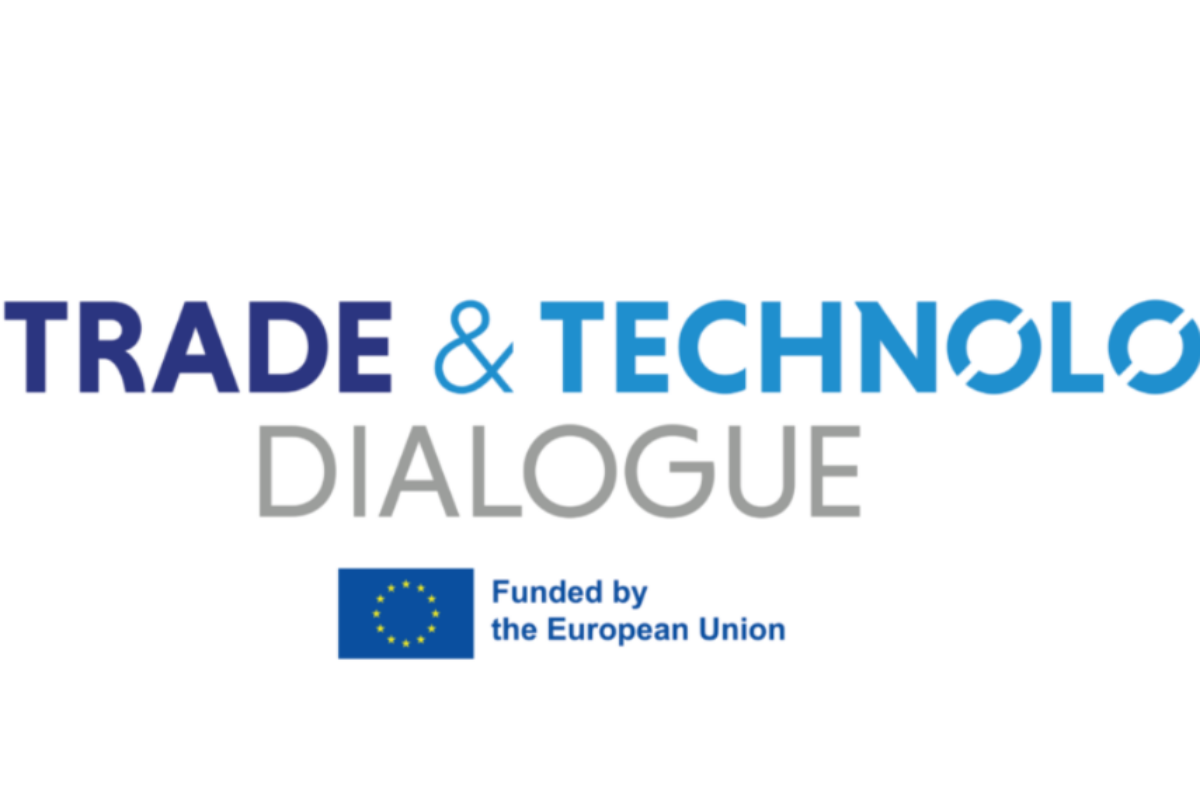This Study presents an evaluation of the implementation of the innovation principle, limited to two of its three components, i.e. the Research and Innovation Tool included in the Better Regulation Toolbox, and the innovation deals. The Study only represents a very early assessment of the extent to which the innovation principle is being correctly implemented, and whether changes would be required to make the principle more effective and useful in the context of the EU better regulation agenda.
The main finding is that the innovation principle has the potential to contribute to the quality and future-proof nature of EU policy, but that significant changes and effort will be needed for this potential to fully materialise. The most evident areas for improvement are related to the lack of a clear legal basis, the lack of a widely acknowledged definition, the lack of awareness among EU officials and stakeholders, and the lack of adequate skills among those that are called to implement the innovation principle. As a result of these problems, the impact of the innovation principle on the innovation-friendliness of the EU acquis has been limited so far. The Commission should clarify in official documents that the Innovation principle does not entail a de-regulatory approach, and is not incompatible with the precautionary principle: this would also help to have the principle fully recognised and endorsed by all EU institutions, as well as by civil society, often concerned with the possible anti-regulatory narrative around the innovation principle in stakeholder discussions.
Apart from clarifications, and further dissemination and training, major improvements are possible in the near future, especially if the innovation principle is brought fully in line with the evolving data-driven nature of digital innovation and provides more guidance to the Commission on how to design experimental regulation, including inter alia so-called ‘regulatory sandboxes’. Finally, the Commission should ensure that the innovation principle is given prominence with the transition to the Horizon Europe programme, in particular due to the anticipated launch of ‘missions’ in key domains. The Study is based on desk research, interviews with stakeholders and case study analysis.
- Home
- Research
- CEPS Topics
- CEPS Topics
- CEPS Topics
- CEPS Units
- Publications
- Events
- Activities
- Membership
- Expert commentaries
Support to evaluation of the Innovation Principle
Related Projects
Click on the links below to view related projects, or click on the button to view all projects.
Artificial Intelligence (AI) holds tremendous potential to enhance human decisions and to avoid cognitive overload and bias in high-stakes scenarios.…
The three-year project is aimed at enhancing CEPS research activities in the fields of research and innovation (R&I) policy, women’s…
The media sector is exposed to and undergoing continuous innovations that occur at a pace never seen before and have…
NEUROCLIMA aims at establishing a mindset, articulated through processes, frameworks, services & interfaces for the support and establishment of systemic…
ORBIS addresses the disconnects between ambitious ideas and collective actions at a large socio-technical scale. It responds to the profound…
The Conference on the Future of Europe is a milestone in the history of the development of participatory democracy in…
The TTD is an EU-funded project designed to support the EU-U.S. Trade and Technology Council (TTC), which serves as a forum for the European…
CEPS is carrying out the study “Cancer: Repository of Regional Prevention and Detection Policies”, a specific contract implementing the framework…
The European Union lacks a coordinated approach to the development of artificial intelligence (AI). This has led to a fragmented…
Generative artificial intelligence is artificial intelligence that is capable of generating text, images, videos or other data using generative models.…
The emergence of powerful generative AI systems prompted a reconsideration of many previous findings and predictions. A recent study observed…
This project is focused on the production of a thematic report on FP10, the future EU framework programme for research…
Economy-wide assessments of regional trade agreements often fall short of capturing the complexity of agri-food trade policies especially in the…
This study will examine the medium-term time-horizon (3-8 years) of the emerging infectious diseases (EID) threat spectrum in a manner…
C4U is a holistic interdisciplinary project addressing all the essential elements required for the optimal integration of CO2 capture in…
(1) CEPS will contribute Ethical, Legal, Socio-Economic (ELSE) research and guidelines for the FLEXIGROBOTS platform (WP2, lead for task 4…
The impact of the COVID-19 pandemic has been deep and wide. In spite of unprecedented efforts to understand the COVID-19…
The Hidden Treasures Program, a joint initiative by Donald Kalff and Andrea Renda launched in the fall of 2019, aims…
The purpose of VISTA is to promote and stimulate the academic interest in the EU Single Market. The ways to…
The Integrated Strategic Energy Technology (SET) Plan sets outs 10 priority actions to accelerate the transformation of the EU’s energy…
The EU-GCC Clean Energy Network, funded by the European Union, initiated its activities in 2010, as a response to the…
This six-year project, which started in April 2015 for three years and was followed by a second edition of another…
The ultimate objectives of TRIGGER are to provide EU institutions with knowledge and tools to enhance their actorness, effectiveness and…
The beginning of this decade is shaping up to be a pivotal point in the future of the digital agenda…
The study aims at assisting the Commission in drafting a possible policy intervention to address the current need for cybersecurity…
The Executive Agency for Small and Medium-sized Enterprises (EASME) is conducting the study “Big Data and B2B platforms: the next…
The project aims to (i) provide a consistent, comprehensive and transparent understanding of the global RE supply chain; (ii) identify…
Green Steel for Europe supports the EU towards achieving the 2030 climate and energy targets and the 2050 long-term strategy…
CEPS analysed the closed and open questions for two open public consultations related to two legislative initiatives as part of…
The proposed project will analyse the potential impact of the COVID-19 pandemic and the ensuing economic crisis on various aspects…
Seismic changes in global geopolitics, the rapid rise of global production networks, increasing disputes surrounding trade integration initiatives and challenges…
The study’s aim is to assist the Commission in evaluating the existing legal and policy framework applicable to the security…
The Study to support an Impact Assessment of Regulatory Requirements for Artificial Intelligence in Europe consists of 3 parts: 1.)…
In the context of the EU’s forthcoming AI Strategy, CEPS is participating in a large-scale behavioural research study on civil…
The current European Expert Network on Economics of Education (EENEE) can soon look back at 13 years of excellent advice…
The objective of the study was to assist the Commission’s Impact Assessment process in providing it with robust evidence as…
The potential gains from further removal of barriers in the EU Single Market to the free movement of services is…
The Energy Efficiency Directive (EED) places an obligation on Member States to promote the availability to final customers of high-quality…
The objective of this study is to collect and annotate publicly accessible data on digital labour platforms workers. The relevant…
The Directorate general for Financial Stability, Financial Services and Capital Markets Union (DG FISMA) has commissioned Centre for European Policy…
The study analyses the role of e-commerce in the Internal Market and provides a framework to answer the question of…
The primary objective of the project was to write a report, analysing the potential contribution of the Internet of Things…
This project has been commissioned by DG EMPL to map the opportunities and challenges for micro and small enterprises in…
The study provided an analysis of the EU’s instruments to tackle aggressive tax planning and harmful tax practices. The study…
i+ii.) Objectives and tasks: The study looked at the many ways in which digital solutions can be implemented on the…
FinTech are organizations combining innovative business models and technology to enable, enhance and disrupt financial services. The phenomenon of today…
The Index of Readiness for Digital Lifelong Learning (IRDLL) is the result of a collaboration between CEPS and Grow with…
CEPS, in cooperation with COWI, prepared a large study on the competitiveness of the renewable energy sector for DG ENER…
CEPS carried out this study for the Section for the Single Market, Production and Consumption of the European Economic and…
The “Study to gather evidence on the working conditions of platform workers” funded by the Directorate-General for Employment, Social Affairs…
This Report, a joint effort between Donald Kalff and a group of CEPS researchers led by Andrea Renda, aims at…
Data sharing between lenders is commonly acknowledged to be one of the core ingredients of successful credit markets. The aim…
In compliance with Article 13 of Decision (EU) 2015/2240 establishing the ISA2 programme, the interim evaluation assessed the relevance, effectiveness,…
This project was an extension of the previous project conducted with Eurofound called “Exploring the employment and working conditions related…
Over the past few decades, new digital platforms such as China’s Alibaba, Japan’s Rakuten and the U.S.’s eBay have grown…
The overarching goal of SET-Nav was to support strategic decision making in Europe’s energy sector, enhancing innovation towards a clean,…
This project was made for the Austrian Presidency of the Council of the EU. It investigated the effects of digitalisation…
The H2020 MAKERS project aimed at bringing together leaders from business, academia and policy to study issues related to the…
The IRSDACE project funded by DG EMPL of the European Commission aimed at increasing the knowledge on the collaborative economy…
Germany’s Network Enforcement Act, or NetzDG law represents a key test for combatting hate speech on the internet. Under the…
In September 2019 Europe’s financial markets will undergo a revolution. From that date, the Payment Services Directive (PSD2) will require…
The Mission of the Peopleʼs Republic of China to the EU provided funds to CEPS in the framework of a…
The Study starts from the 2015 ESPAS Global Trends Report, which identified five global economic and social trends to 2030,…
ATMs constitute a critical component in today’s infrastructure for facilitating cash payments. However, ongoing digitalisation (cashless payments, e-commerce and online…
Based on primary data collected from 189 plants over a 10-year period (2008-2017) via an email survey and follow-up interviews,…
This project was a contribution to Eurofound’s research activities on ‘work and employment in the digital age’ as outlined in…
This Study serves as the Final Report for the DG TAXUD Project “Study contributing to an Impact Assessment on Council…
More than 3.5 billion people use the Internet today, up from a mere 738 million in 2000, according to a…
This Study contributes to filling the knowledge gap on tech transfer in Europe by providing more information on licencing practices…
This document contains a proposal by the Centre for European Policy Studies (CEPS) for preparing an impact assessment of possible…
Drafting of a Policy brief for the European Parliament, INCOM Committee, on fake news. Fake news is certainly not a…
European air travel has witnessed a tremendous evolution since the late 1990s following the liberalisation process, with many new entrants…
The conference explored ways in which digital technologies can contribute to the resilience of EU society, with specific emphasis on…
CEPS was commissioned to perform the study-project “Online talent platforms, labour market intermediaries and the changing world of work”, which…
This report presents the assessment of the impacts of a potential EU measure on cash payment restrictions (either a prohibition…
The purpose of this Study was to contribute to the Impact Assessment of a possible revision of Council Directive 1992/83/EEC…
This study carries out an ex-ante impact assessment of substantial amendments put forward by the IMCO and JURI Committees of…
The study analyses the experience of China and the EU in bridging the digital divide. It is based on desk…
In compliance with Article 13 of Regulation (EU) No 250/2014 establishing the Hercule III Programme, the Evaluation Roadmap prepared by…
The Study consists of two components. The first one concerns an assessment of the status of implementation, covering both the…
This study was conducted for the European Parliament IMCO Committee. After setting out the background of recent EU initiatives in…
Digitalisation is transforming business landscapes and the world of work, and redefining the boundaries of production, consumption and distribution. This…
The platform economy has become an important consideration within the European Commission’s Digital Economy agenda. The Joint Research Centre and…
A Cumulative Cost Assessment (CCA) aims to identify, assess and, where possible, quantify the cumulative cost generated by selected areas…
This report, commissioned by RegWatchEurope, looks at the feasibility of a Commission’s initiative aimed at adopting reduction targets for regulatory…
The study arose from a need to revise the application of the Mutual Recognition principle and the implementation of the…
The project aimed to deepen the EU-Brazil Strategic Partnership and bilateral relations between the parties, by supporting the development of…
Through scientific research, stakeholder engagement and dissemination, MoPAct advanced the knowledge base required in promoting the formulation and implementation of…
SIMPACT was a FP7-funded research project. With its 11 partners from nine European countries, it advanced understanding of social innovation’s…
As technology and new business models evolve at a breath-taking pace in various sectors of the economy, governments are becoming…
A key platform for the EU’s economy over the coming decades will be the consolidation of an online eCommerce market…
This report analyses the proposed reform of the e-communications regulatory framework presented by the European Commission in September 2016. While…
Considering Egypt’s research and political landscape, and with the aspiration to address the current challenges of STI cooperation, ShERACA+, is…
The study provides a stocktaking exercise of the state of play in the Digital Single Market and offers a critical…
This report considers potential policy options to promote ‘systemic innovation’ that foster decarbonisation, with a specific focus on the EU.…
The European Commission has invited the Technopolis Group, the Oxford Internet Institute (OII) and the Centre for European Policy Studies…
The study consists of a Fitness Check on the Construction Sector in the policy areas of Internal Market and Energy…
The purpose of this project was to assess, in an empirical and factual manner, the recent functioning of ASEM ever…
The general objective of this study is to complement and support the Commission roadmap following the Green Paper for the…
This study examines energy prices for a selection of five energy-intensive sectors of EU industry: i) steel; ii) aluminium (primary…
Regulation has for a long time been considered mainly as an obstacle to innovation, especially with respect to rules that…
On the request of DG Grow of the European Commission, CEPS carried out an analysis on the impact of the…
The ancient Silk Road consisted of a network of paths, mountain passes and ‘branches’ used by daring traders to connect…
The Joint Research Centre (JRC) requested CEPS to conduct an analysis of an online labour platform in the field of…
CEPS worked with the Thai National Broadcasting and Telecommunications Commission to develop a strategy for its future Internet Policy. The…
The Transatlantic Trade and Investment Partnership (TTIP) is an effort by the United States and the European Union to reposition…
This study provides an ex-post evaluation of the EU copyright framework as provided by EU Directive 29/2001 on Copyright in…
This study explores the existing policy problems and the possible options for reforming the EU copyright framework as provided by…
The ambitious reform of the Single Market for services triggered by the adoption of the Services Directive is far from…
The general objectives of the study was the assessment of the state of the art of “Converting Sunlight to solar…
Starting in May 2021, CEPS launched a new edition of its “Young Thinkers Initiative”. CEPS selected 30 brilliant young minds…
The overarching aim of Mistra Carbon Exit is to develop societal pathways for the transformative change of the supply chains…





























